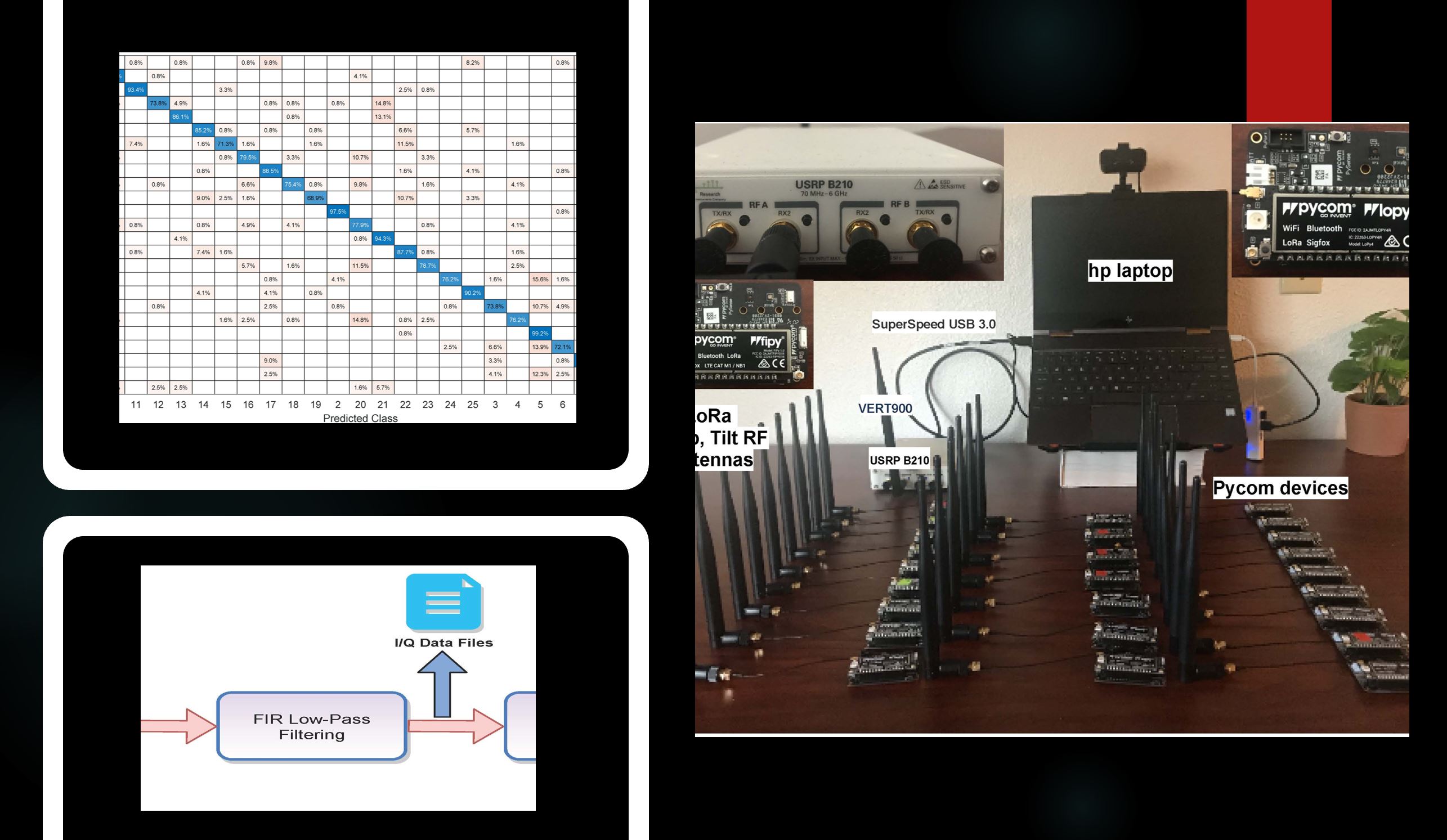Brief Overview:
This project investigates deep learning-based device fingerprinting techniques that exploit RF spectrum information distorted by hardware/device-specific impairments to uniquely identify and distinguish wireless devices. These techniques are of great relevance and importance to several newly emerging wireless applications, such as automated device authentication, spectrum access enforcement and sharing, and network access anomaly detection. The challenges we are currently investigating include robustness against signature cloning/impersonation, resiliency to network deployment and domain variability (such as changes in wireless channel conditions, receiver hardware, protocol configurations, etc.), scalability with massive low-end, resource-limited devices (such as IoT devices).
Selected Publications:
Datasets:
|

Cognitive radio technology is well recognized for its great potential for promoting dynamic and opportunistic use of the bandwidth and spectrum resources. Despite their benefits in improving spectrum utilization efficiency and thus addressing the spectrum shortage challenges, cognitive radio networks (or CRNs) suffer from serious privacy and security issues, merely because CRN systems inherently require users’ location information to be able to enable opportunistic spectrum sharing. Unfortunately, knowing that their whereabouts may be exposed to others, users may be discouraged from participating in dynamic spectrum sharing, thereby potentially hindering the adoption and deployment of CRN technology in future generation networks.
In this project, we are developing and investigating privacy-preserving approaches for cooperative as well as database-based spectrum sensing strategies, leveraging various different technologies and techniques, including cryptographic mechanisms, blockchains, PIR, and others.
Under construction.
Under construction.